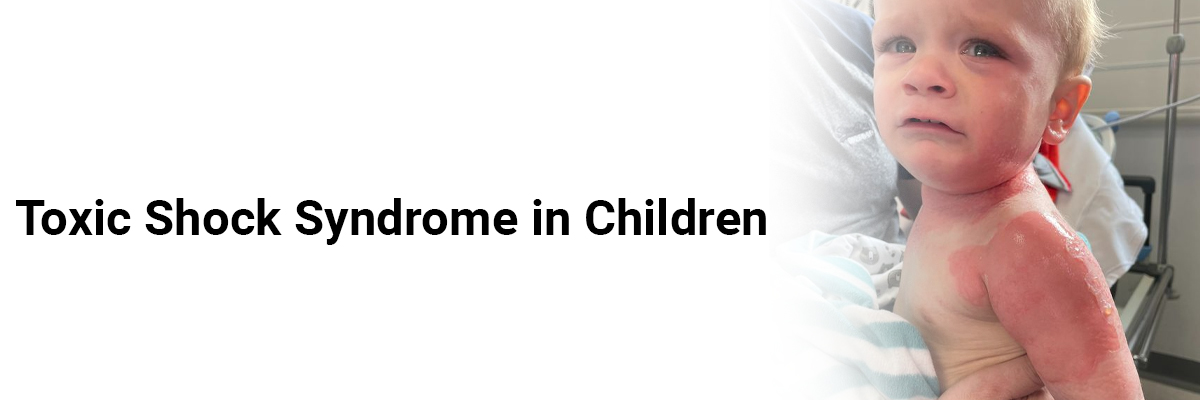
 IJCP Editorial Team
IJCP Editorial Team
Toxic Shock Syndrome in Children
Toxic shock syndrome (TSS), a severe, acute life-threatening condition, mostly affects healthy children. Exotoxins are primarily produced by Staphylococcus aureus (TSST-1) and group-A beta-hemolytic streptococci, which cause this condition. These exotoxins are superantigens that begin nonspecific, polyclonal T-cell activation and an uncontrolled immune response causing cytokine storm. These cause clinical manifestations of TSS, like high-grade fever, erythroderma, gastrointestinal symptoms, and capillary leak that lead to hypotension with consequential multiorgan failure. Children are typically more sensitive to TSS as they don't have protective antibodies against the causative toxins.
The diagnosis primarily relies on clinical manifestations, with some laboratory parameters indicating organ dysfunction without alternative etiologies. Unfortunately, no specific diagnostic test exists to differentiate TSS from diseases with identical clinical features. However, the common differentials are sepsis/septic shock, Kawasaki illness, drug reactions, COVID-19-associated multisystem inflammatory syndrome, meningococcal and rickettsial infections, leptospirosis, dengue fever, and enteric fever.
There isn't strong evidence to back the use of IVIG in TSS, particularly staphylococcal TSS. A systematic review that included five studies suggested a survival benefit of IVIG in clindamycin-treated patients with streptococcal TSS. IVIG may be given to patients with severe staphylococcal TSS who are resistant to other therapeutic measures. However, more clarity is needed regarding the use of IVIG in TSS.
Takia L, Lodha R. Toxic Shock Syndrome: A Diagnostic and Therapeutic Challenge!. Indian J Pediatr. 2023;90:321–322. https://doi.org/10.1007/s12098-023-04478-z

IJCP Editorial Team
Comprising seasoned professionals and experts from the medical field, the IJCP editorial team is dedicated to delivering timely and accurate content and thriving to provide attention-grabbing information for the readers. What sets them apart are their diverse expertise, spanning academia, research, and clinical practice, and their dedication to upholding the highest standards of quality and integrity. With a wealth of experience and a commitment to excellence, the IJCP editorial team strives to provide valuable perspectives, the latest trends, and in-depth analyses across various medical domains, all in a way that keeps you interested and engaged.




















Please login to comment on this article